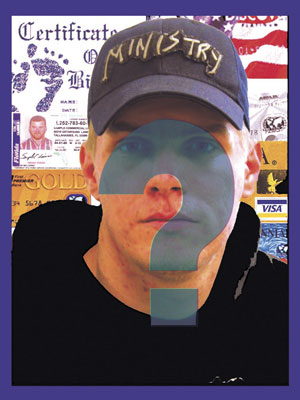Identity theft can affect you

This archived article was written by: Josh Luke
Imagine getting a letter in the mail saying that your Visa card has been maxed out. The only problem is that you don’t know how or when you spent the money. So you try to find out what you have “supposedly” spent your money on. They tell you that you purchased a new car and charged it onto your credit card.
Welcome to the group of people who have had their identity stolen. Identity theft occurs when a person uses another person’s personal information to take on that person’s identity. Identity theft is much more than misuse of a social-security number, it can also include credit card and mail fraud.
According to CNN, the Federal Trade Commission said that nearly one in eight adults fall victim to identity theft in the last five years. There were 9.9 million victims in 2002 alone. The theft costs businesses $48 billion and $ 5 billion in out-of-pocket expenses to individuals in 2002.
Many states have passed laws that punish people who commit this type of fraud much more severely than previously. For example, in Utah if you are caught committing identity theft that costs the person whose identity have stolen less than $300 then you have committed a Class B misdemeanor. If it costs the person between $300-$1,000, then it is a Class A misdemeanor and $1,000-$5,000 theft is considered a third degree felony. If it is more than $5,000, it is a second-degree felony which could land you in prison for up to 20 years along with a big fine.
The question that comes up often is, “What should I do to avoid becoming a victim of identity theft?” According to the U.S. Department of Justice, all you have to do is remember the word SCAM.
S- Be Stingy about giving out your personal information to others unless you have a reason to trust them regardless of who they are.
C- Check your financial information regularly, and look for what should be there and what should not.
A- Ask periodically for a copy of your credit report.
M- Maintain careful records of your banking and financial accounts.
The College of Eastern Utah’s campus police department was contacted and asked if there was anything like this happening on campus. Officer James Prettyman said, “none that I can think of.”
If you feel you have become a victim of identity theft, you should get in touch with the Federal Trade Commission. You can also call the FBI or the U.S. Secret Service. For more information go to www.usdoj.gov/criminal/fraud/idtheft.html.




